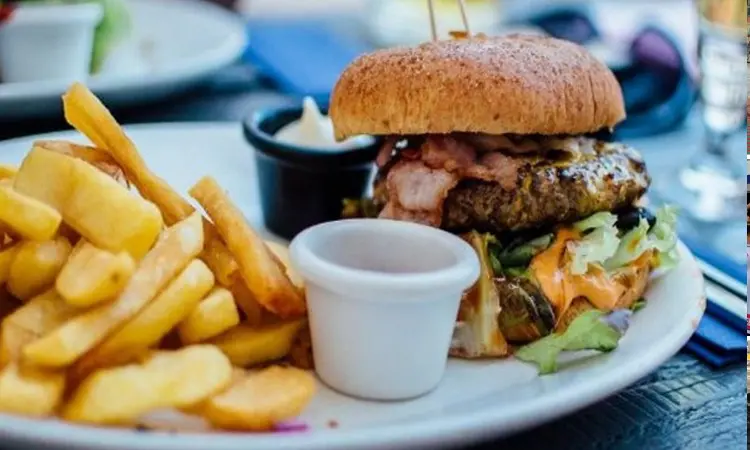- Home
- Medical news & Guidelines
- Anesthesiology
- Cardiology and CTVS
- Critical Care
- Dentistry
- Dermatology
- Diabetes and Endocrinology
- ENT
- Gastroenterology
- Medicine
- Nephrology
- Neurology
- Obstretics-Gynaecology
- Oncology
- Ophthalmology
- Orthopaedics
- Pediatrics-Neonatology
- Psychiatry
- Pulmonology
- Radiology
- Surgery
- Urology
- Laboratory Medicine
- Diet
- Nursing
- Paramedical
- Physiotherapy
- Health news
- Fact Check
- Bone Health Fact Check
- Brain Health Fact Check
- Cancer Related Fact Check
- Child Care Fact Check
- Dental and oral health fact check
- Diabetes and metabolic health fact check
- Diet and Nutrition Fact Check
- Eye and ENT Care Fact Check
- Fitness fact check
- Gut health fact check
- Heart health fact check
- Kidney health fact check
- Medical education fact check
- Men's health fact check
- Respiratory fact check
- Skin and hair care fact check
- Vaccine and Immunization fact check
- Women's health fact check
- AYUSH
- State News
- Andaman and Nicobar Islands
- Andhra Pradesh
- Arunachal Pradesh
- Assam
- Bihar
- Chandigarh
- Chattisgarh
- Dadra and Nagar Haveli
- Daman and Diu
- Delhi
- Goa
- Gujarat
- Haryana
- Himachal Pradesh
- Jammu & Kashmir
- Jharkhand
- Karnataka
- Kerala
- Ladakh
- Lakshadweep
- Madhya Pradesh
- Maharashtra
- Manipur
- Meghalaya
- Mizoram
- Nagaland
- Odisha
- Puducherry
- Punjab
- Rajasthan
- Sikkim
- Tamil Nadu
- Telangana
- Tripura
- Uttar Pradesh
- Uttrakhand
- West Bengal
- Medical Education
- Industry
Bedtime snacking with delayed insulin delivery increases risk of overnight hyperglycemia in hospitalized diabetes patients: Study

A new study published in Diabetes Technology and Therapeutics showed that one of the main causes of postprandial and nocturnal hyperglycemia in hospitalized inpatients is delayed insulin delivery after meals and snacking before bed without insulin administration.
For those with diabetes, controlling blood glucose levels is essential, and timing insulin boluses during meals and eating before bed are important factors in this process. Better decisions about insulin dosing and glucose stability at night are made possible by continuous glucose monitoring (CGM), which offers real-time insights into glucose changes.
Optimizing glycemic regulation and lowering the risks of hyperglycemia (high blood sugar) and hypoglycemia (low blood sugar) can be achieved by comprehending how these variables interact. It might be difficult to provide prandial insulin with meals on time for hospitalized inpatients. Moreover, no prior research has examined the glycemic effects of post-dinner snacking, sometimes known as "bedtime snacking," in the absence of prandial insulin treatment. This study was by Sara Alexanian and colleagues examined the effects of bedtime eating and delayed insulin delivery on inpatient glycemic control.
The In-Fi study, compared Fiasp with insulin aspart (Novolog) in inpatients with type 2 diabetes, was the subject of a post hoc analysis by researchers. The Dexcom G6 PRO continuous glucose monitoring (CGM) device was used to measure the glucose results. A total of 122 randomized participants who finished the primary trial protocol (which involved wearing a CGM for at least 4 meals) had their CGM and insulin delivery data examined. This study assesses the effects of bedtime eating and postponed insulin injection on glucose regulation.
Insulin boluses given before meals (n = 149) had a 4-hour postprandial time in range (TIR70–180) of 48%, while those given more than 5 minutes after a meal had a TIR70–180 of 24%. When controlling for bedtime sensor glucose, eating between 9 p.m. and 12 a.m. was linked to a considerably lower overnight (9 p.m. and 6 a.m.) TIR70–180 and a significantly higher fasting glucose the following morning.
After controlling for initial bedtime sensor glucose, bedtime eating was linked to greater overnight glucose percentage coefficient of variation and higher overnight glucose standard deviation. Overall, one of the main cause of post-meal and nocturnal hyperglycemia in hospitalized patients is the delayed administration of insulin during meals and the consumption of insulin-free snacks before bed.
Reference:
Alexanian, S. M., Cheney, M. C., Bello Ramos, J. C., Spartano, N. L., Wolpert, H. A., & Steenkamp, D. W. (2025). Impact of meal insulin bolus timing and bedtime snacking on continuous glucose monitoring-derived glycemic metrics in hospitalized inpatients. Diabetes Technology & Therapeutics. https://doi.org/10.1089/dia.2025.0027
Neuroscience Masters graduate
Jacinthlyn Sylvia, a Neuroscience Master's graduate from Chennai has worked extensively in deciphering the neurobiology of cognition and motor control in aging. She also has spread-out exposure to Neurosurgery from her Bachelor’s. She is currently involved in active Neuro-Oncology research. She is an upcoming neuroscientist with a fiery passion for writing. Her news cover at Medical Dialogues feature recent discoveries and updates from the healthcare and biomedical research fields. She can be reached at editorial@medicaldialogues.in
Dr Kamal Kant Kohli-MBBS, DTCD- a chest specialist with more than 30 years of practice and a flair for writing clinical articles, Dr Kamal Kant Kohli joined Medical Dialogues as a Chief Editor of Medical News. Besides writing articles, as an editor, he proofreads and verifies all the medical content published on Medical Dialogues including those coming from journals, studies,medical conferences,guidelines etc. Email: drkohli@medicaldialogues.in. Contact no. 011-43720751


